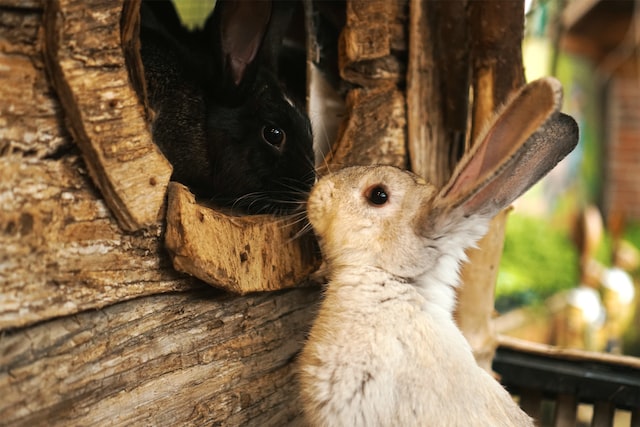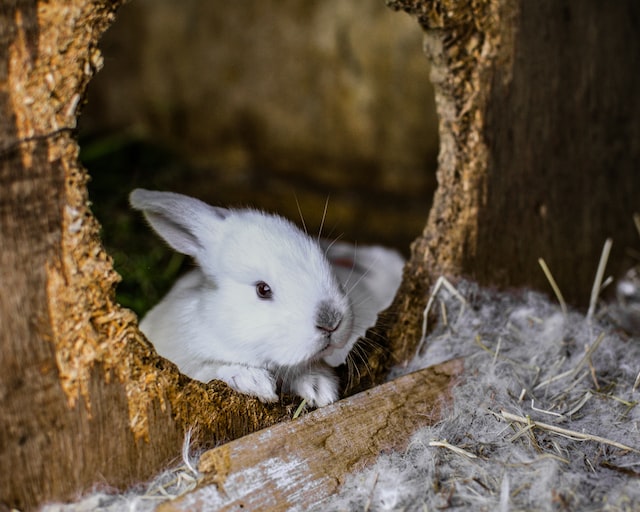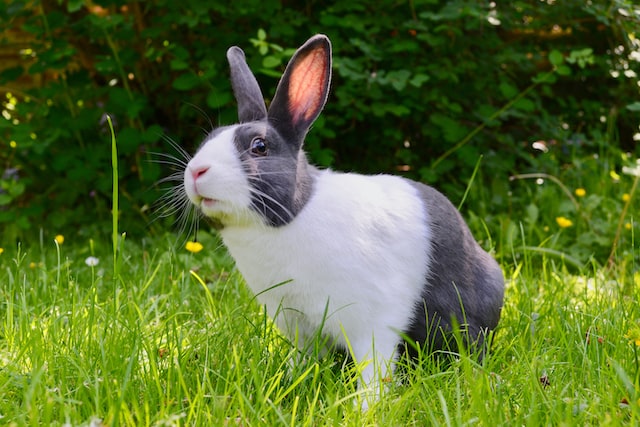Worms can be a concern for your pet rabbit, just as if you had a dog or a cat. But how do rabbits get worms when you try to provide them the best home possible? And if they do get worms, do they have to be treated? You want your rabbit to be as happy and healthy as possible.

But if they do get worm, it can cause itchiness and distress around their bottoms, and it could potentially pass the worms onto other pets in your home. It’s best to be aware of this condition, so you can quickly treat it if it happens, as well as to avoid it in the future.
Contents
Do Rabbits Need Regular Deworming Treatment?

No, rabbits do not need regular deworming treatment if they are an indoor pet. If you have dogs and cats that are indoors/outdoors, then yes, they will, as they’ll be exposed to faeces that could potentially be infested with worms.
But as long as they are treated, your indoor rabbit should be fine. Your rabbit will only need to be treated with deworming medication if they do have them.
What Types of Worms Do Rabbits Get?

Pinworms are the most common type of parasite that rabbits can get. Your rabbit may already have them and you may not even know. They usually aren’t a major health threat. They can’t be passed to humans unless you yourself eat infested undercooked meat.
The worse thing that can happen is that they can make your rabbit’s anal region itchy and inflamed. They may become annoyed and a bit distressed over time, so it’s best to check them over at least once a week. And it’s never fun to look at worms either.
How Did My Rabbit Get Worms?

Generally, they can get pinworms if they eat the faeces of other infested rabbits. This may happen outside in the wild, it may happen if they’re at a pet store with other rabbits, or at an animal rescue center with other rabbits. If they’re young, they may have picked them up from their mother or father.
If you’ve just adopted a rabbit, the main time to be concerned is when you’ve just adopted your pet. If you’ve had your rabbit for a long length of time and they’ve been happy and healthy, the risk of worms is greatly decreased. If you don’t let them out into the back yard at all, and you don’t have any other pets, the risk can be zero. But this is still a condition that you need to be aware of.
Another way your rabbit may have gotten worms was if you allow them to go outside. They may have walked across the ground and eaten plant matter that was infested with other animal’s faeces. There may have been worms in it that your rabbit ingested.
What Symptoms Does a Rabbit with Worms Have?

Check your rabbit at least once a week. You may see that their fur coat around their bottom may be thinning out or in patches. Sometimes you can see the worms, and sometimes not.
They could be from 5 to 10 mm long, and be hanging from the anus. You may also see them in their faeces. If your rabbit becomes distressed, they may eat less food, so weight loss can be another problem.
If you’ve just adopted a younger rabbit, worms can be a more serious issue for them. They may have more severe infections, which can lead to significant weight loss, and lethargy. The worms may be causing them diarrhea. A young rabbit will have gotten this infestation from their brothers and sisters.
What Can I Do If My Rabbit Gets Worms?

If you see worms in your rabbit’s anus, or in their faeces, you should book an appointment at the nearest veterinary clinic. Never try to self-diagnose and treat your rabbit with medication meant for dogs or cats, as this could be deadly.
Your vet will examine your rabbit to see if they do have pinworms, or some other less common type. They will try and figure out how the rabbit got the worms in the first place, so that it doesn’t happen again.
Your vet may take a small skin sample to check under the microscope. This is to aid in the diagnosis, and to ensure that the proper anti-parasitic worm treatment is given. You’ll need to give this medication to your rabbit for several weeks. A follow-up appointment at the veterinary clinic may be required to ensure the worm infestation has stopped.
What Preventative Measures Can I Do?
Since worms aren’t fun to look at, and they can cause some discomfort in your pet rabbit, it’s best to do preventative measures. If you have just adopted a rabbit, ask a the pet rescue center, or the pet shop or breeder, if the rabbits have been given de-worming treatment. If they have, then you don’t need to worry about it, but do still check your rabbit and their faeces every week.
If you just have the one rabbit and are considering bringing another pet into the home, do keep the new pets quarantined for two weeks. This will give you time to give deworming treatment to the other pets, as well as check them for worm infestation and other parasites too.
If you want to let your rabbit outdoors, set up an enclosure for them. This will not only keep your rabbit safe, but keep other animals from getting inside and laying worm-infested poop.
It may seem like a lot of work, but taking the time to care for your pets will be worth it when they’re happier and healthier.
Worms in rabbits can be a common health issue that you might have to deal with at least once during your pet ownership. But if it does happen, your pet rabbit can be taken to the vet for treatment. Most treatment is effective, and once you have figured out the reason for why your rabbit got worms, you can prevent it from ever happening again.





